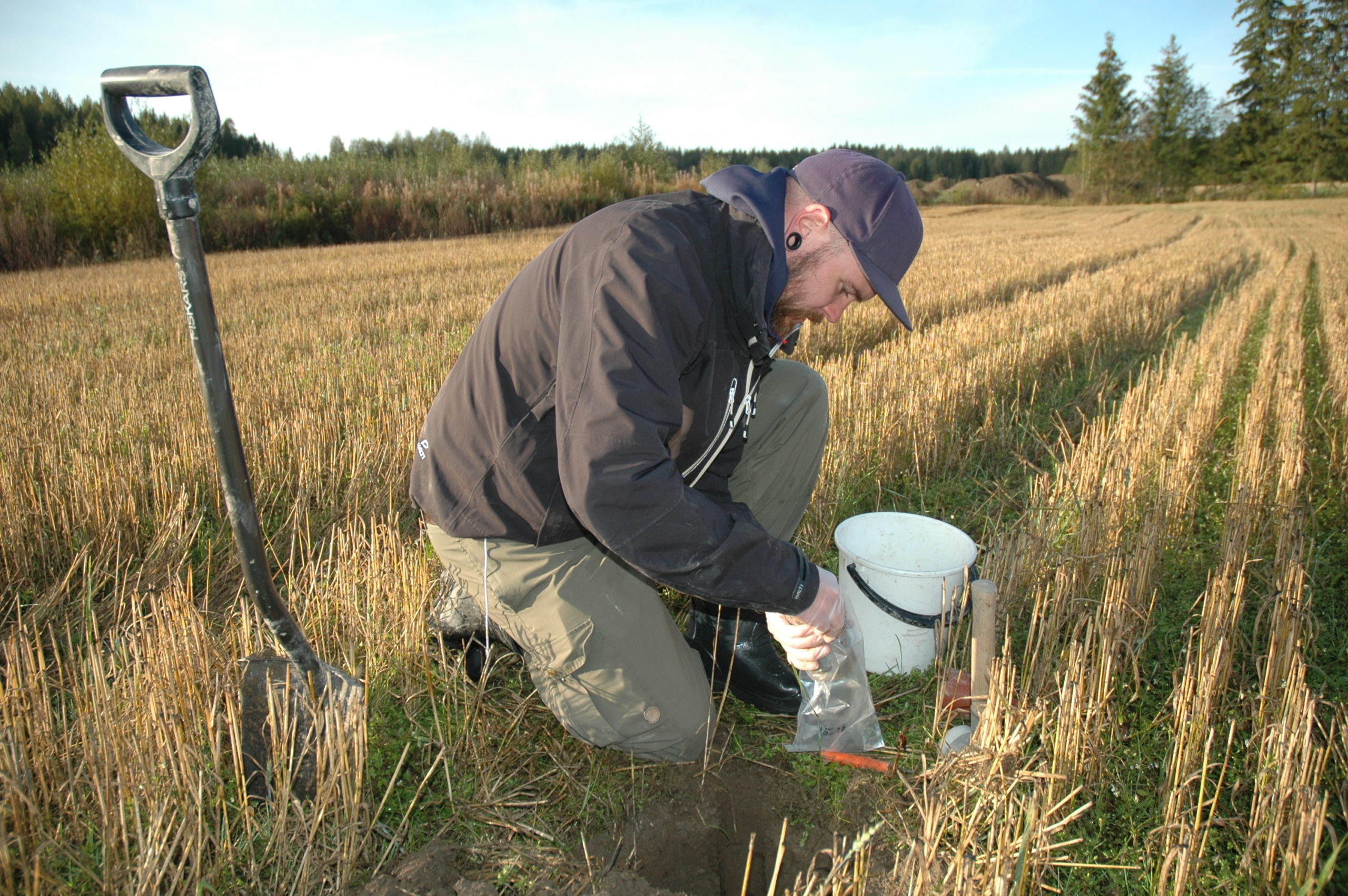A recent research project responds to concerns over weakened soil biodiversity. The objective of the SoildiverAgro project of the Natural Resources Institute Finland (Luke) is to protect soil biodiversity and fertility by developing cultivation methods. The EU-funded research project covers six geographic regions, ranging from Finland to the Mediterranean.
Agricultural lands have lost a significant part of their carbon stocks during the past decades. Effective soil improvement methods, the extensive use of crop protection agents and artificial fertilisers and focus on monocropping cause, for example, soil erosion, the excess discharge of nutrients and soil compaction.
Decreases in soil fertility may be reflected in interference in the activities of soil organisms or changes in relationships and structures between different organisms. These may result in unproductive fields that are low in nutrients and useless for farmers. Luckily, the EU has woken up to the alarming decrease in soil biodiversity in agricultural areas, which may partly explain the decrease in many vital ecosystem services.
The SoildiverAgro project, funded by the EU’s Horizon 2020 programme, was launched last summer. Its ambitious objective is to maintain and protect soil biodiversity, not forgetting yields and crop quality, by developing new or existing cultivation methods. Luke coordinates this project in Finland. Together with Kilpiä and Tyynelä farms and the Potato Research Institute, Luke represents agricultural areas in boreal ecosystems.
An overview of soil biodiversity in agricultural areas in Europe
The research project got off to a proper start in the autumn of 2019 when soil samples were taken from conventionally and organically cultivated wheat fields in all six different climate zones included in the project. The objective is to identify biodiversity among soil organisms, such as earthworms, roundworms and microbes, in agricultural areas in Europe alongside different indicators that represent the soil structure and health.
The researchers aim to produce a comprehensive dataset, for the first time, to obtain new information about the current level of biodiversity among soil organisms in European agricultural areas with a highly different climate and other conditions and about underlying factors in each region.
Farmers engaged from the start – methods tested on fields
The views and opinions of farmers and other stakeholders involved in the agricultural sector have been collected from the very beginning in the SoildiverAgro project. Extensive cooperation will continue until the end of the project. This ensures that the research project can focus on actual problems and practical solutions regarding agricultural areas.
At the beginning of March 2020, a discussion event was held with project partners and engaged experts, communicating information about the results of the survey on problems in agriculture in each region and discussing field tests planned for next summer together with stakeholders that represent the agricultural sector.
This year, a total of 15 field tests will be launched under the project, three of which will focus on early potato and wheat fields in Finland. The different field tests will identify different crop rotation methods, better crop protection systems, the use of catch crops and the use of different agricultural and industrial side streams as soil improvement agents, as well as different soil improvement methods.
The growth, health and yields of the crops grown during the field tests, as well as soil properties and any changes in biodiversity among organisms, will be monitored for three years. Ultimately, the viability of cultivation methods depends on farmers’ interest towards them and their impact on farm economies.
The SoildiverAgro project is expected to produce volumes of new information for preparing instructions and recommendations for better cultivation methods. The objective is that these new methods secure a healthy and well-functioning soil with a high level of biodiversity and that, as a result, sustainable agriculture can be continued successfully in constantly changing conditions.
22 partners from all over Europe participate in SoildiverAgro project. Universidade de Vigo coordinates the project. The other partners are the universities Eesti Maaülikool Estonian University of Life Sciences, Universidad Politécnica de Cartagena UPCT and University of Copenhagen UCPH. Research institutes Johan Heinrich von Thuenen-Institut and Flanders research intitute for agriculture, fisheries and food ILVO also participate in the project. More info: http://soildiveragro.webs.uvigo.es/
Further information:
Krista Peltoniemi
Senior scientist
Photo: Laboratory engineer Juha-Matti Pitkänen taking samples in Hämeenkyrö in September 2019. Photographer: Visa Nuutinen
